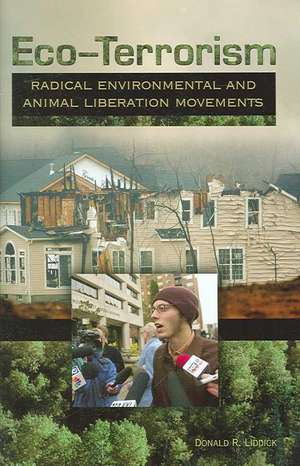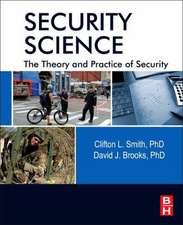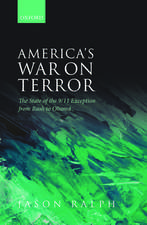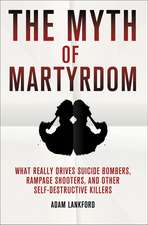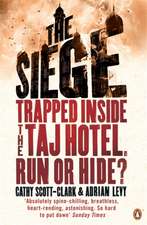Eco-Terrorism: Radical Environmental and Animal Liberation Movements
Autor Donald R. Liddicken Limba Engleză Hardback – 29 oct 2006 – vârsta până la 17 ani
Preț: 363.98 lei
Preț vechi: 479.05 lei
-24% Nou
Puncte Express: 546
Preț estimativ în valută:
69.66€ • 72.45$ • 57.51£
69.66€ • 72.45$ • 57.51£
Carte tipărită la comandă
Livrare economică 14-28 aprilie
Preluare comenzi: 021 569.72.76
Specificații
ISBN-13: 9780275985356
ISBN-10: 0275985350
Pagini: 200
Dimensiuni: 156 x 235 x 20 mm
Greutate: 0.45 kg
Editura: Bloomsbury Publishing
Colecția Praeger
Locul publicării:New York, United States
ISBN-10: 0275985350
Pagini: 200
Dimensiuni: 156 x 235 x 20 mm
Greutate: 0.45 kg
Editura: Bloomsbury Publishing
Colecția Praeger
Locul publicării:New York, United States
Notă biografică
Donald R. Liddick is Associate Professor of Administration of Justice at the University of Pittsburgh, Greensburg. He is the author of The Global Underworld (Praeger, 2004) and other books and articles that have appeared in various journals.
Recenzii
In this study of criminality within the radical environmental movement, Liddick promises to pursue and present research findings in an evenhanded manner, noting that the term terrorism does not seem to be warranted in descriptions of radical environmentalist tactics. Nonetheless, he refers to all such acts as eco-terrorism and concludes by speculating that some ecoradicals would not hesitate to destroy humankind in order to save the planet and its nonhuman inhabitants. The author offers a typology of radical tactics along with data on recent actions that suggest increasing tendencies toward violence, in combination with a public opinion survey and interviews with accused or incarcerated activists that show some attitudinal support for his thesis..[t]his book provides a decent introduction to its subject. Upper-division undergraduates through faculty.
Adopting the terminology of the hard right in the US, Liddick explains not only how environmental and animal rights movements break laws, but also explains what they think and how they feel while they do it.
Adopting the terminology of the hard right in the US, Liddick explains not only how environmental and animal rights movements break laws, but also explains what they think and how they feel while they do it.
